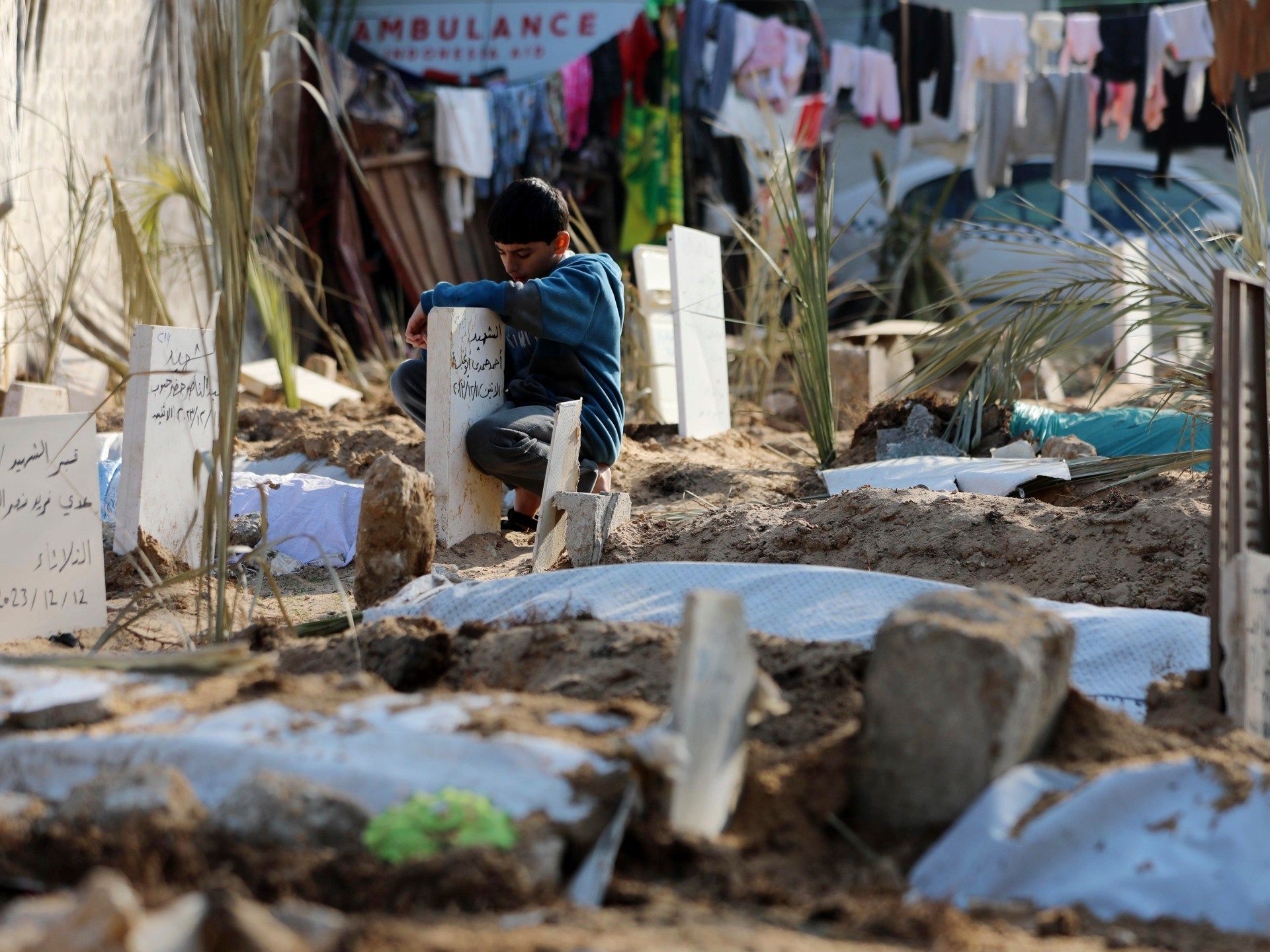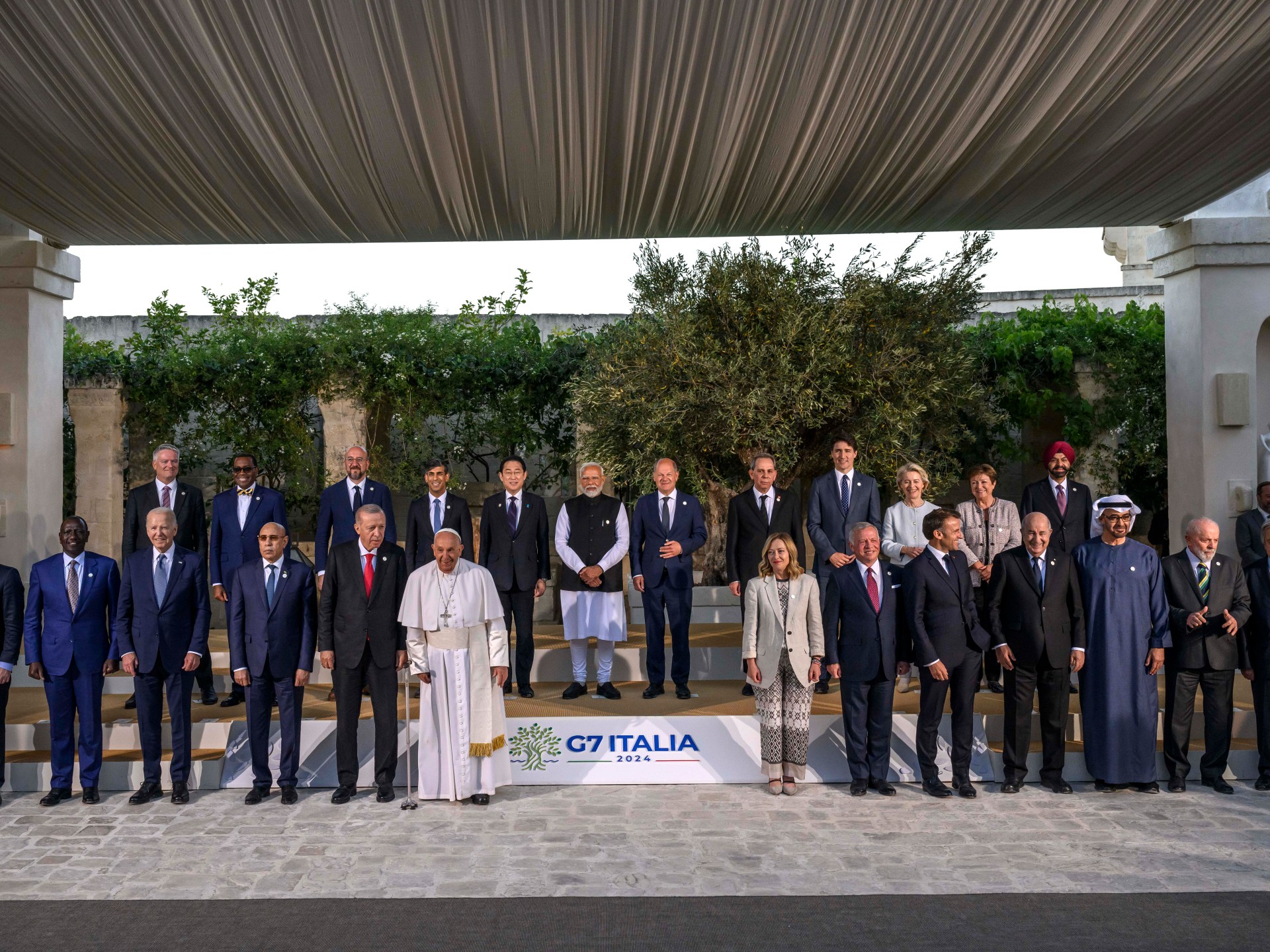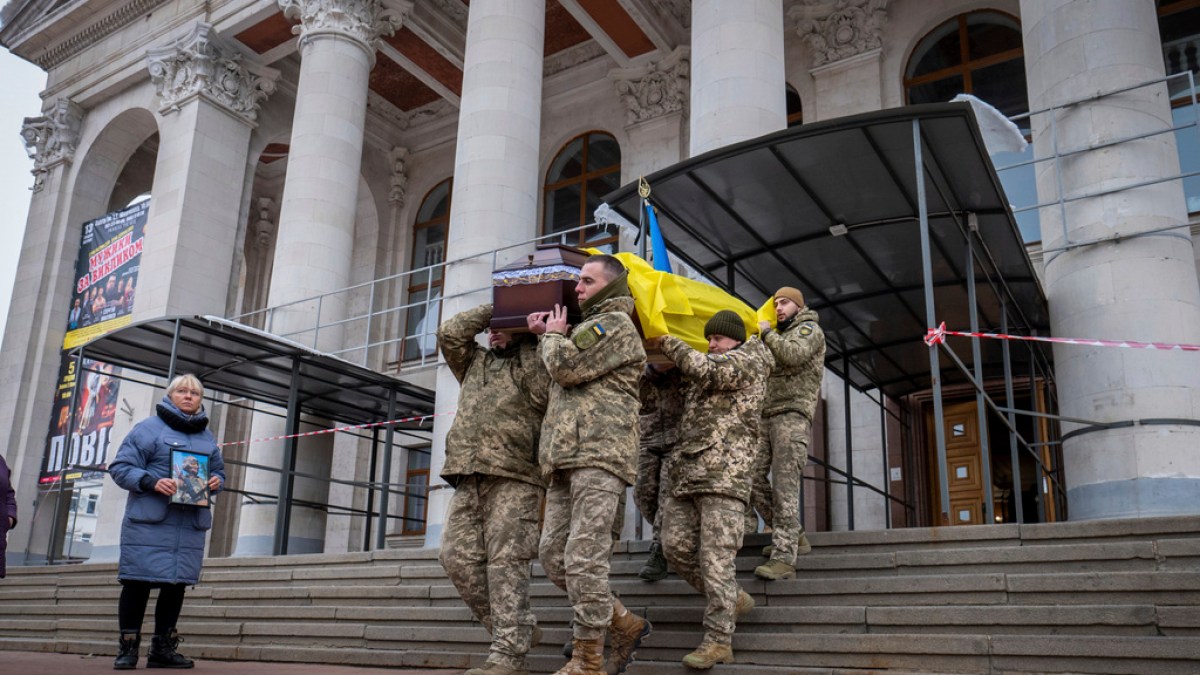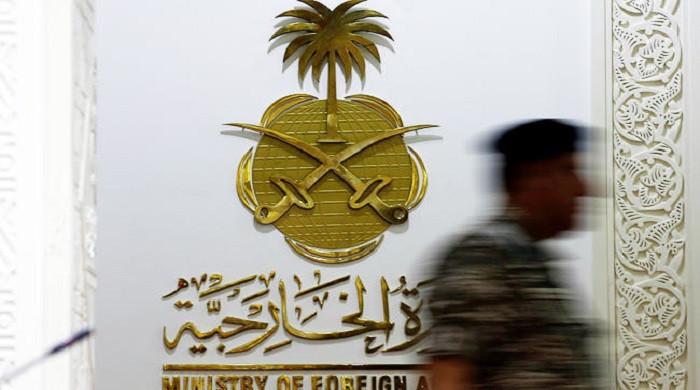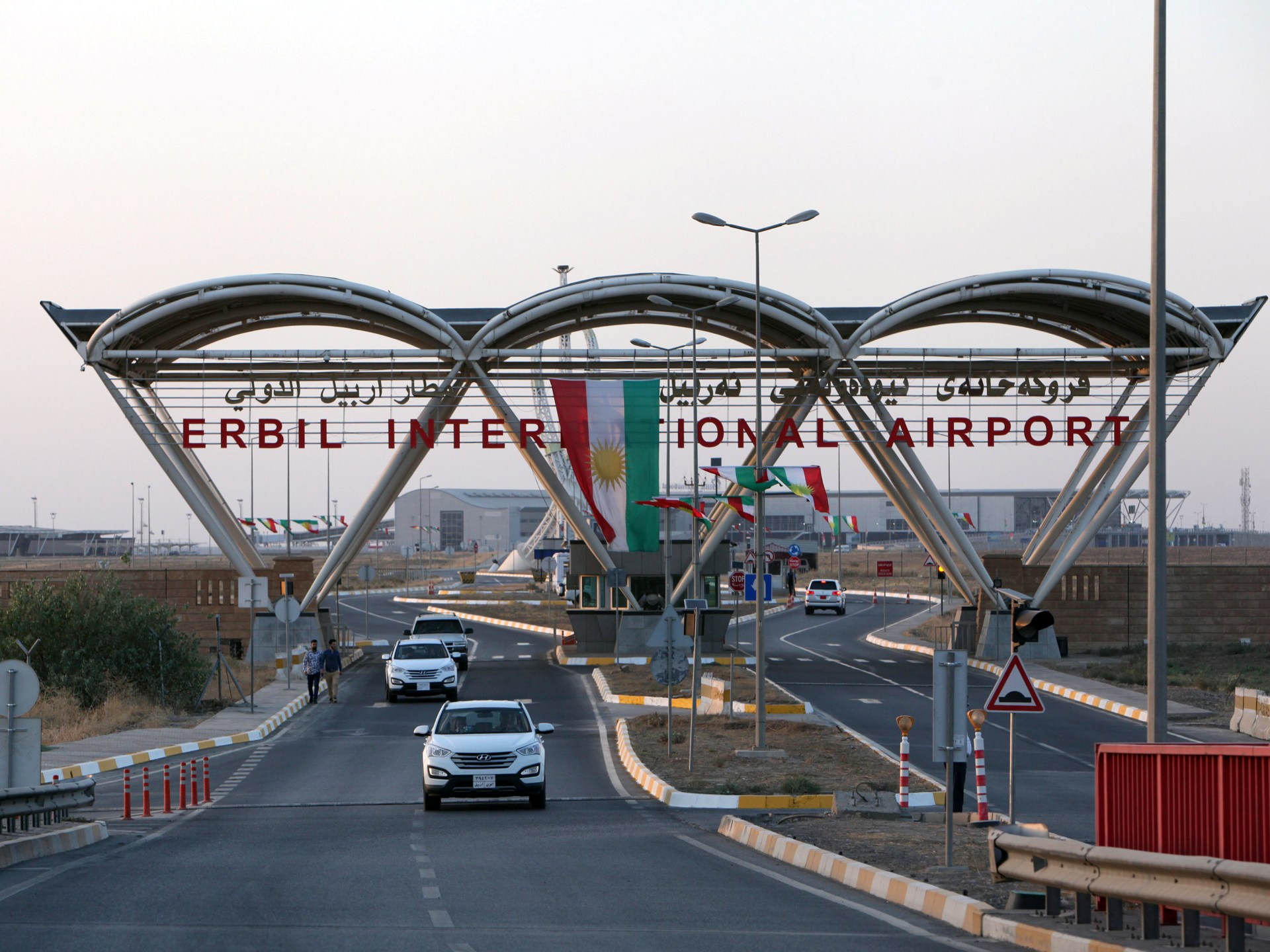Gaza City— The morning the unthinkable happened, my father held the radio nearby, hoping the news bulletin would bring some kind of relief, like news of a ceasefire. My mother was trying to strike a reassuring tone after another long, sleepless night in our family home in the center of Gaza City.
“I’m hoping that today will pass peacefully, or at least be a little different than last night,” he told us.
That morning, December 7, after contacting my editorial office in Doha to inform them that we had survived the intense overnight bombing, I joined my father Rafik, 65, who was listening to the news.
None of us had any idea what was to come.
It happened in a matter of milliseconds. In an instant, the bright morning sun disappeared, as the entire world went dark and my two-year-old son, Rafik, my wife, Asmaa, my father, my mother, Nadia, and my sister, Fatma, were thrown into a black world of choking dust, smoke and fire.
Everything seemed to fade away. All I knew was that pain was coursing through my body and that I was trapped under what I later learned was the weight of the roof pressing down on me and my family.
In a panic, I called out my family’s names one by one. Not being able to see any of them, I prayed and cried for one of them to answer me.
None of them did.
A few moments later, I passed out.
Total confusion
Hours later, it was the voices that came first.
Muffled cries of “He’s alive too!” that became “he’s breathing!” I did not care. The only thing I cared about was knowing if my family was safe.
“They’re all fine, don’t worry about them,” a stranger assured me, trying to stop the flow of blood from my mangled arms and fingers.
“Just please don’t make any effort to move; keep your head up,” he instructed as he searched my body for other injuries and wounds.
All I felt was absolute confusion. I couldn’t make any sense of what was happening. I didn’t understand who all those people were, or how we had been hit by an airstrike that no one had heard coming. I couldn’t tell where my family was or think clearly about what had happened.
I remember the explanations. Two hours had passed since the house was bombed. All this time we had remained buried under the rubble, lying there while our neighbors frantically struggled to break through the cement walls of the house to reach us.
As I slowly began to understand what had happened, the pain I felt seemed to intensify.
We all suffered injuries during the airstrike. I remember my son, Rafik, screaming, his face covered in blood and dust as strangers tried to clean him up.
I can’t tell you how we survived the bombardment, the glass and metal falling on us as the two-story building collapsed on our heads. It still seems like a miracle.
But although that airstrike didn’t kill us, it destroyed something inside us. It erased the last remnants we had of normality and continued life. In a small moment, he planted the seeds of the mental wounds that we will carry with us every day for a lifetime.
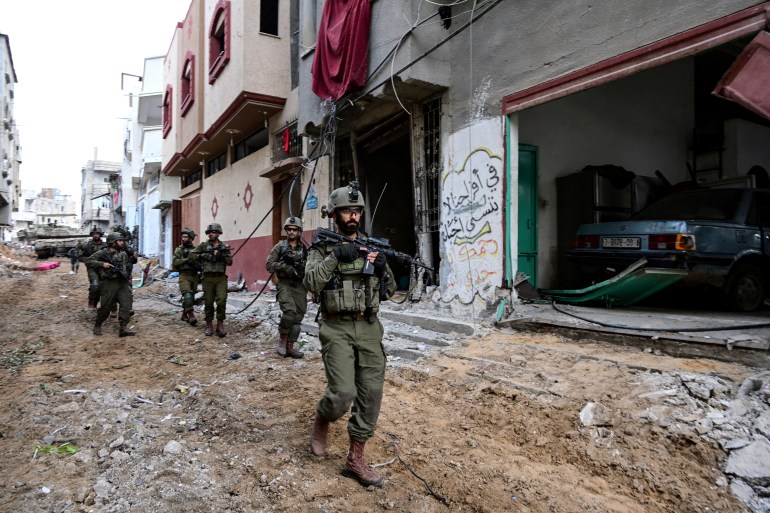
A week of endless agony
Our neighbors were able to provide us with immediate first aid, cleaning and dressing our wounds. But there was nothing to ease the pain that now tormented our bodies. No one was under any illusions that accessing medical care would be easy.
Hospitals and medical facilities have been severely affected by the bombing. The lack of adequate medical supplies has caused many of the injured to lose their lives due to infection. Moving anywhere in northern Gaza carries the serious risk of being targeted by an Israeli sniper or caught in a volley of gunfire. However, despite orders by Israeli forces to withdraw, this area remains home to hundreds of thousands of civilians, who must endure these risks daily.
For six days, in the ruins of our house, we dreamed of finding painkillers or something that would at least allow us to sleep.
There were none.
They told us we were lucky to survive the bombing. While that may be true, it offers little comfort during the night, when the pain from injuries becomes indescribable, depriving you of sleep or any comfort.
Infection is a constant concern. Whenever the first trace of contamination appears, the wounds must be cleaned with hot water, a liquid so hot that it burns the healthy skin around the wound. It was difficult to make Rafik understand that we were not trying to burn him. Still, even though the pain of the scorching water was greater than that of any infection, he accepted it.
It’s not worth thinking about the alternative.
Running away terrified
A week passed and we began to notice some improvements in our health. Meanwhile, the bombardment continued.
At approximately noon on December 14, our neighborhood was subjected to overwhelming aerial and artillery bombardment. It was unbelievable and seemed completely indiscriminate. Our neighbors were dying minute by minute. Many more were injured.
When the Israeli troops arrived after the bombing, those who could fled for their lives, including my family. I can only describe that moment as pure terror. Those who had been hit or injured as a result of the bombing were left behind.
To stop and help was to die.
As we weaved through the streets among crowds of terrified people, the pain from our wounds returned with a vengeance.
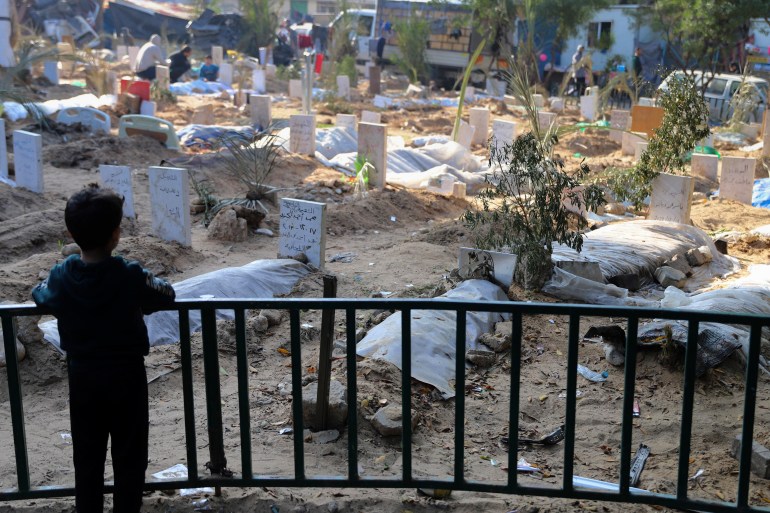
My wife, with our terrified son in her arms, suggested that we seek refuge in one of the schools run by the United Nations Relief and Works Agency for Palestine Refugees in the Near East (UNRWA), relatively far from the focus of the the bombings.
There we joined thousands of others, who spoke of having left behind scenes of death and carnage.
Now we have little left to live except the essentials. No food or medicine available.
There are not enough mattresses and blankets to protect against the intense cold at night. Drinking water is a luxury as it leaves people with nothing to drink but dirty water, increasing the chances of bacterial infections and stomach illnesses.
Children, pregnant women, the young and the elderly face the same daily struggle: survival.
Life at this school is about waiting for death.
There’s nothing more we can lose. We have lost friends, loved ones, colleagues, teachers and doctors. Everything – absolutely everything we had – is gone.
Even if the war ends now, it will take years for us to begin to regain some of what we have lost.
When we can have a place we can call home again, we have no idea.

